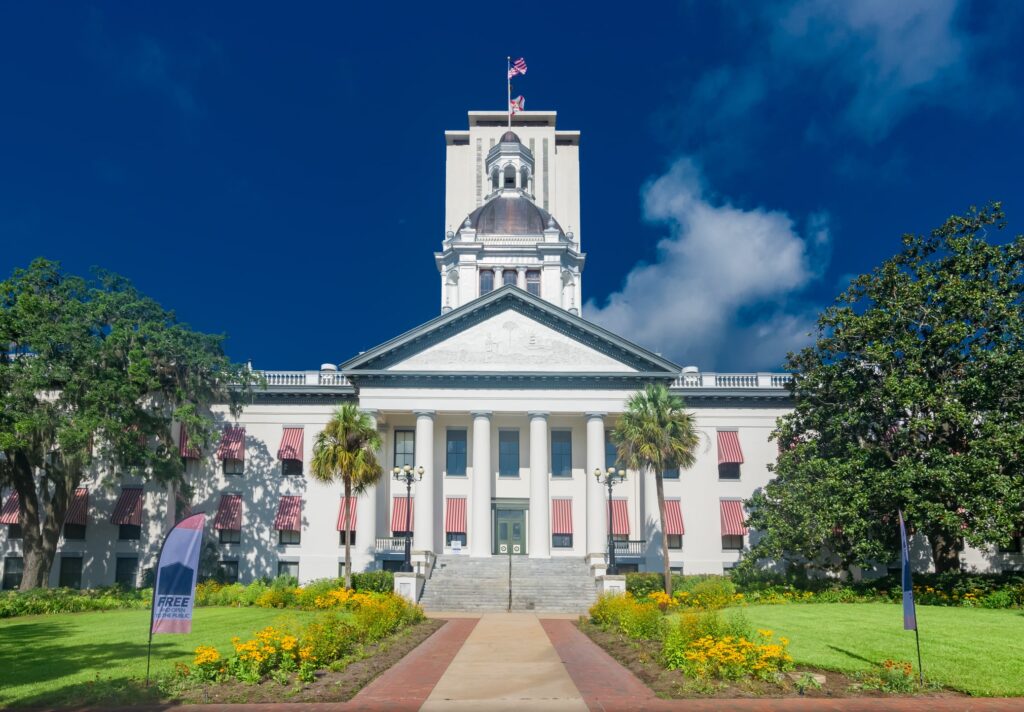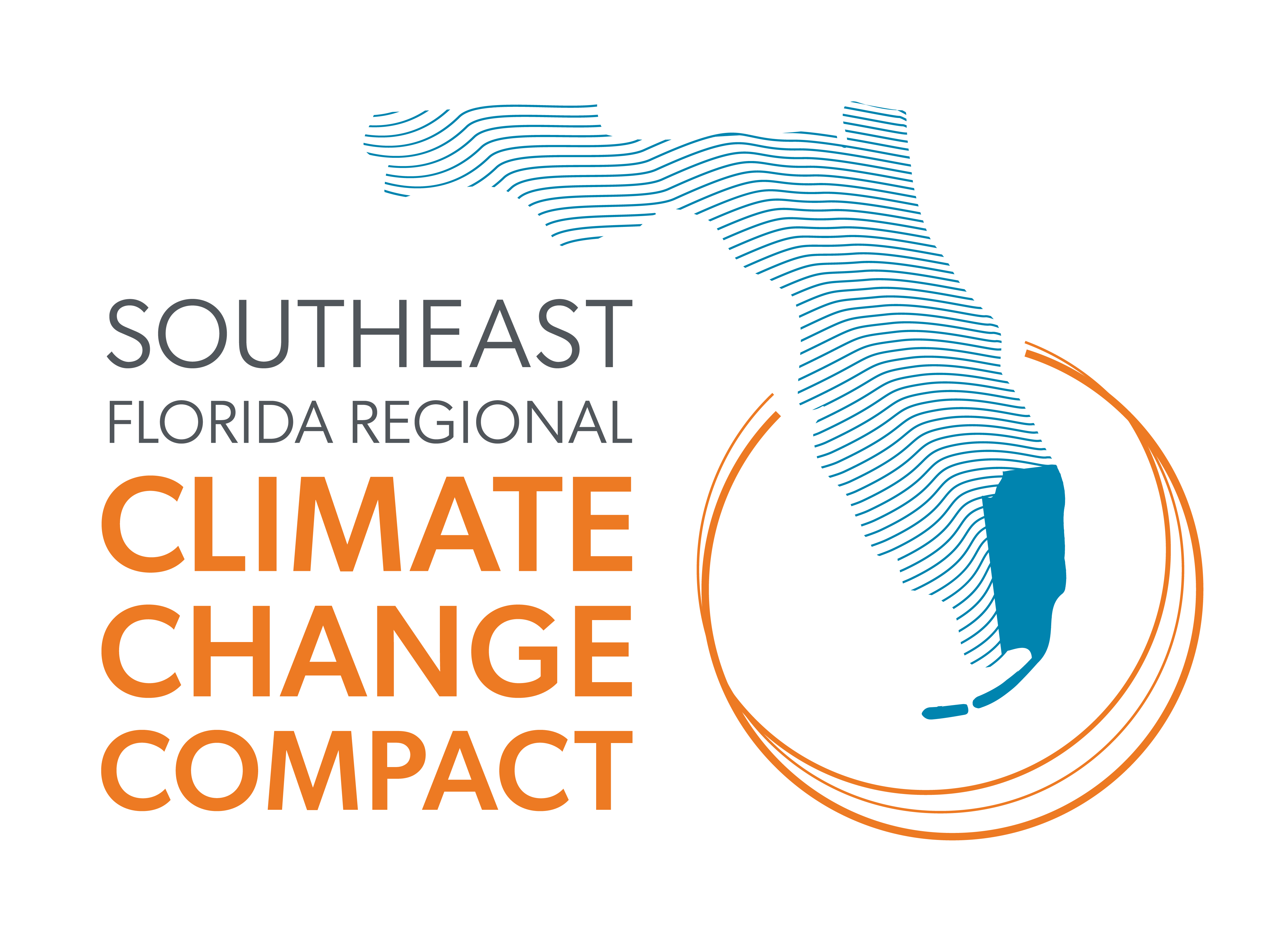
News
2023 Legislative Session Wrap-up
June 26, 2023

Authored by Janet Bowman, Senior Policy Advisory, The Nature Conservancy Florida Chapter
The 2023 Florida Legislature finished its work on May 5th, passing a record $117 billion dollar budget. Below are the key takeaways for local and tribal governments as it relates to resilience and mitigation efforts.
Appropriations
Given the positive state revenue outlook, SB 2500—Appropriations, generously funds resilience, conservation, and environmental restoration programs. Funding for the Resilient Florida program includes $300 million for Resilient Florida Flooding & Sea Level Rise Resilience Plan projects, $20 million for planning grants and $2 million for regional resilience collaboratives. Everglades Restoration funding includes $478,520,477 for the Comprehensive Everglades Restoration Program (CERP), $86,084,653 for the Northern Everglades and $70,000,000 for the C-51 reservoir. Record land acquisition funding is close to $1 billion dollars, including $100 million in recurring Florida Forever dollars and $850 million for two wildlife corridor acquisitions. The legislature also prioritized water quality improvement funding, including $104,900,000 for the new Indian River Lagoon Project Program, $304,671,849 for the Wastewater Construction Revolving Loan Program, $200,000,000 for the Wastewater Grant Program and $432,993,047 for local government water projects. As of this writing, the Legislature has not submitted the Appropriations Act to the Governor for his signature.
In addition, the Department of Economic Opportunity received spending authority for federal grant funds of $123,988,863 for Home Energy Assistance, $25,363,096 for Weatherization and $16,000,000 for the Low-Income Home Energy Assistance Program (LIHEAP).
Resilience/Adaptation
CS/HB 111—Flooding and Sea Level Rise Vulnerability Studies expands the scope of the Sea Level Impact Study (SLIP) study requirement originally enacted in 2020, repeals the original SLIP requirement in section 161.551 of the Florida Statutes (s.161.551, F.S.), and creates a new s.380.0937, F.S. The bill creates a new definition of an “area at risk due to sea level rise,” now defined as “any location that is projected to be below the threshold for tidal flooding within the next 50 years by adding sea level rise using the sea level rise projections in s. 380.09(3)(d)3.b, F.S.”, which are the 2017 National Oceanic and Atmospheric Administration intermediate low and high sea level rise projections. The bill was signed by the Governor on June 13, 2023.
By July 1, 2024, a state-financed contractor may not start construction of a potentially at-risk structure without conducting a SLIP study, providing the study to the Florida Department of Environmental Protection (FDEP), and ensuring that the study appears on FDEP’s website for at least 30 days prior to construction. The SLIP study must include an estimate of the probability of significant flood damage during the expected life of the structure or 50 years, whichever is less, and must provide a list of alternatives and flood mitigation strategies evaluated as part of the project design.
The bill grants FDEP the authority to adopt rules to define a threshold for “significant flood damage” and implement the SLIP study requirement. If a state-financed contractor starts construction of a potentially at-risk structure or infrastructure but has not complied with the SLIP study requirements, FDEP may bring a civil action in a court of competent jurisdiction for injunctive relief.
The bill also adds the funding of feasibility studies and permitting costs for nature-based solutions and water management district-provided technical assistance for local government adaptation planning as eligible categories of projects under the Resilient Florida Program. Grants to water management districts must be used for the express purpose of supporting the Florida Flood Hub for Applied Research and Innovation and FDEP through data creation and collection, modeling, and the implementation of statewide standards.
Greenhouse Gas Reduction
The procurement of electric vehicles by state and local governments is addressed by CS/CS/CS/SB 284—Energy. The bill revises the selection criteria for state procurement of vehicles to be based on the lowest lifetime ownership costs, including the cost for fuel, operations, and maintenance. The bill also requires the Department of Management Services to make recommendations before July 1, 2024 to state agencies, state universities, community colleges, and local governments on the procurement of electric and natural gas fuel vehicles and identify best practices for integrating the vehicles into existing fleets.
A hurdle to the use of rooftop solar in public schools is addressed in section 22 of CS/CS/CS/CS/HB 1—Education (Chapter No. 2023-16.) The bill amends the limitations on the per student station cost of school construction projects to provide that an unfinished construction project for new construction of educational plant space commenced on or before July 1, 2026, is exempt from the total cost per student station requirements. This creates a three-year window where school solar projects will not be subject to the total cost per student station limitation.
Energy Related Preemptions
CS/CS/HB 1281—Preemption Over Utility Service Restrictions prohibits local governments from banning gas stoves and other appliances based on the energy source used by the appliance. In addition, the legislature in CS/CS/SB 1604—Land Use and Development Regulations (Chapter No. 2023-31), expands the scope of an existing preemption allowing electrical substations as a permitted land use in all future land use categories by expanding the definition of “distribution electrical substation” to include accessory administration or maintenance buildings. The bill also changes the short- and long-term planning horizon for local government comprehensive plans to a 10-year and 20-year period, from 5 and 10, and prohibits local governments that fail to update their comprehensive plans under the 7-year evaluation and appraisal process from initiating or adopting any publicly initiated plan amendments.
Lastly, CS/CS/HB 3—Government and Corporate Activism, Chapter No. 2023-28, prohibits state and government entities, that have the authority to issue bonds, including the Division of Bond Finance, acting on behalf of any entity; any local government, educational entity, or entity of higher education or other political subdivision granted the power to issue bonds; from issuing new Environmental, Social, Governance (ESG) bonds such as green bonds, Certified Climate Bonds, GreenStar designated bonds, and other environmental, sustainability or social bonds.
Local Government Authority
In addition, several bills passed this session either create new state preemptions of local government authority or impose additional hurdles to the adoption of local government ordinances. The most expansive bill of this type is CS/CS/SB 170 –Local Ordinances, which requires local governments to prepare a business impact statement prior to the adoption of an ordinance with exceptions for emergency ordinances, and ordinances related to land use, building code, fire code and others. The bill creates a civil action to challenge the adoption of a local ordinance on the grounds the ordinance is arbitrary or unreasonable and provides for prevailing party attorney’s fees, costs, and damages (up to $50,000). In addition, the bill requires cities and counties to suspend enforcement of an ordinance on the grounds that such ordinance is expressly preempted by the state constitution or state law or arbitrary or unreasonable if a legal action is filed within 90 days of enactment of the ordinance and the plaintiff requests suspension in the initial complaint.
CS/CS/CS/SB 250, Natural Emergencies, includes permitting, planning, and contracting provisions to address post-disaster recovery from Hurricanes Ian and Nicole. Of note, the bill prohibits counties and municipalities within 100 miles of the landfall of Hurricane Ian or Hurricane Nicole from adopting more restrictive comprehensive plans or land development regulations concerning the review, approval, or issuance of a site plan, development permit, or development order before October 1, 2024. It also prohibits counties and municipalities from proposing or adopting a moratorium on construction, reconstruction, or redevelopment of any property damaged by Hurricane Ian or Nicole.
Finally, CS/CS/SB 718—Local Government, prevents local governments from requiring an initiative and referendum process for amendments to land development regulations.
Other Bills of Interest
Addressing the shortage of affordable housing in Florida was a priority of Senate President Kathleen Passidomo. The comprehensive affordable housing legislation, the “Live Local Act,” passed early in the session.
The “Live Local Act.” CS/SB 102 (Chapter No. 2023-17) provides $700 million in affordable housing funding and includes regulatory, financial and tax incentives to encourage affordable housing development. For example, the bill changes local governments’ requirements regarding zoning, density, and height to allow for streamlined development of affordable housing in commercial and mixed-use zoned areas under certain circumstances, including that at least 40% of the residential units in a proposed multifamily rental development are, for a period of at least 30 years, dedicated to affordable housing. Certain density and height restrictions are waived and eligible affordable housing developments that meet the requirements do not require a zoning change or comprehensive plan amendment. For residentially zoned areas in unincorporated areas, a county may not restrict the density of a proposed affordable housing development below the highest allowed density on any unincorporated land in the county where residential development is allowed. The bill also repeals the authority of local governments to adopt rent control laws.
Finally, the bill also exempts affordable housing units built pursuant to the Department of Economic Opportunity’s 2018 Keys Workforce Housing Initiative from hurricane evacuation time requirements and instead requires deed-restricted workforce housing properties receiving permit allocations to agree to evacuate at least 48 hours in advance of hurricane landfall.
The “agency bill” for the Florida Department of Environmental Protection, CS/CS/HB 1379–Environmental Protection (Chapter No. 2023-169), contains provisions regarding septic to sewer conversion planning, land acquisition, the Indian River Lagoon, and basin management action plan implementation. The bill requires local governments to update the Sanitary Sewer plan element of their local government comprehensive plan by July 1, 2024, to consider the feasibility of providing sanitary sewer to existing and new developments of 50 or more units that have one or more septic tanks within a 10-year planning horizon. The bill provides for recurring funding of $100 million per year for the Florida Forever land acquisition program, modifies acquisition criteria to prioritize lands within the Florida Wildlife Corridor and lands in imminent danger of development, and raises the threshold for acquisitions that may be completed by the FDEP instead of the Governor and Cabinet. In addition, the bill expands projects that are eligible for the water quality improvement grant program to include additional wastewater projects, stormwater projects, and regional agricultural projects. It removes the requirement for a minimum 50% local match of funds and prohibits new onsite sewage treatment and disposal systems (OSTDS) within a Basin Management Action Plan (BMAP), reasonable assurance plan, or pollution reduction plan where sanitary sewer is available. On lots one acre or less where sewer is not available, new OSTDSs must be an enhanced system or other treatment system that achieves at least 65% nitrogen reduction. Finally, the bill creates an Indian River Lagoon Project Program to address nutrient pollution and loss of seagrass in the Indian River Lagoon.
2024 Legislative Session Dates
The 2024 legislative session will begin on January 9th, 2024. Interim committee meetings are scheduled to begin in October with a shortened time frame for the development of new legislation and committee hearings prior to the start of session.
